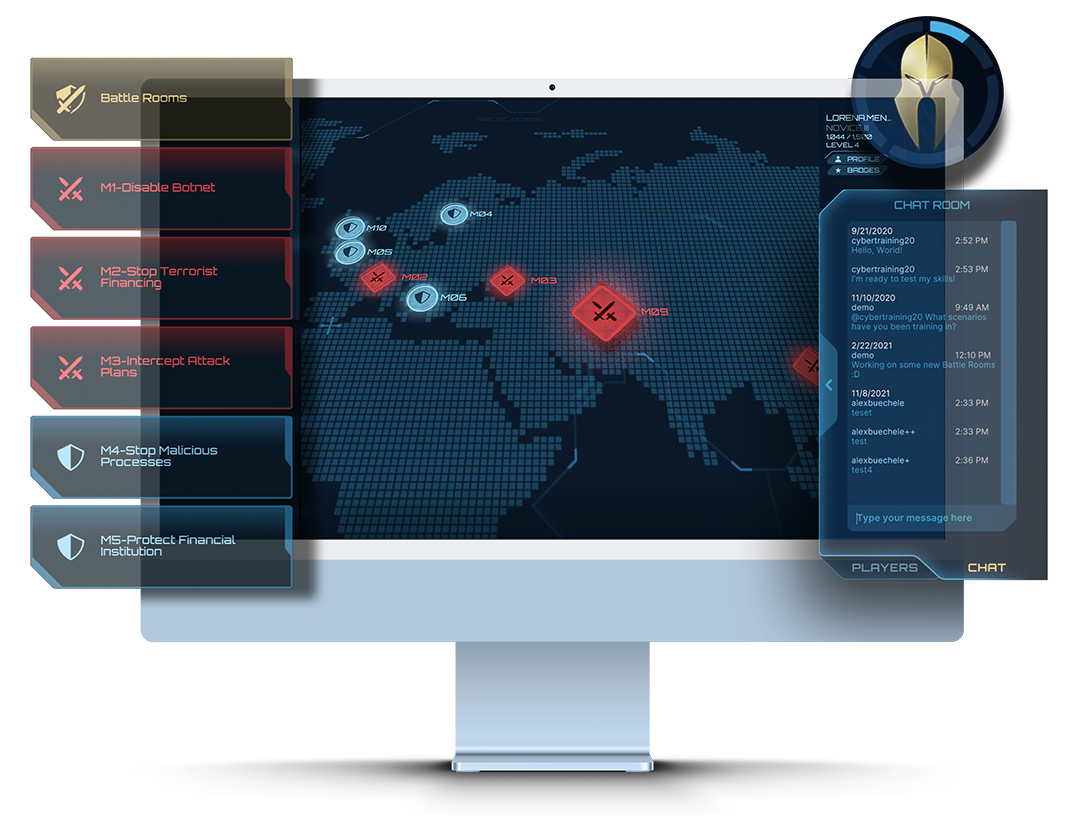Getting a job in cybersecurity doesn’t have to be an intimidating process. If you haven’t been taught the basics and/or are looking to change careers for something different, launching a cybersecurity career can start with basic learnings that lead to more formal training, certifications, and skills development. And there are several online resources for developing security competencies that are free or at a minimal cost. These resources can be complemented with cyber range training to expedite learning to land the cybersecurity job you want.”
To bring cybersecurity to the surface as a strong and lucrative career option for young professionals, we’ve taken the liberty to share some fast facts and fun things about the industry.
Fast Facts About the Cybersecurity Industry
- The market is expected to grow to over $300 billion by 2024 according to a report from Global Market Insights
- The demand to fill cyber jobs is great – over 504,000 cyber positions are available in the U.S alone
- There are 33 distinct areas of cybersecurity work according to NIST/NICE
- The national average career salary is $94,000-119,000 (on the low end) for security-related positions in the U.S. according to the Robert Half Technology’s 2020 Salary Guide
- Earning cyber certifications like CompTIA Security + Certification and Certified Information System Security Professional is highly regarded and respected amongst prospective employers (impress the hiring manager and prove your value)
- Information security jobs are expected to increase by 32% through 2028 according to the Bureau of Labor Statistics
Technical Abilities and Knowledge Needed for the Cybersecurity Industry
- IT fundamentals like system and web application administration
- Coding skills (C, C++, Java, Python, Ruby, Perl, PHP)
- Understanding network architecture, administration and operating system functionality, policies, performance, and features
- Database knowledge from permissions access to structure to storage security
- Understanding of how attackers operate and function
- Foundational understandings of things like risk management, networking basics, toolkit maintenance and situational awareness of what’s happening in the industry today
Professional Skills Needed for the Cybersecurity Industry
- Leadership – Call the shots alongside a team of cyber pros to build decision-making skills
- Communication – Articulate what and how threats need to be mitigated to teams
- Analytical thinking – Reflect and continuously learn the hacker mindset to grow your understanding of why and how attacks happen
- Passion for learning and developing skills – Learning never stops as long as technology keeps advancing. You’ll find new ways to secure assets and data with every keystroke and software update
- Determination – You’ll want to protect critical assets just as your own PII is at stake (imagine having your own bank account hacked and wanting to do something proactive about it)
- Collaborative – You’ll likely work alongside a crew of cyber enthusiasts, and will need to work in harmony in order to keep security posture hardened
- Writing – Developing reports to roll up to your security and business supervisor will require stellar writing skills so they can understand the technical jargon in laymen’s terms
The Benefits of a Cybersecurity Career
- You’re never bored—there’s always an attacker to stop or a vulnerability to assess
- You get to learn about and use cutting-edge technology
- There’s always a new challenge to tackle (and if you’re a problem-solver, this is fun!)
- You’ve likely got job security as positions like information security analysts and penetration testers are in demand in every industry
- You can advance in your expertise as a professional (there’s no limits to moving up the ladder or laterally across it to grow in knowledge and abilities)
- Remote work in cybersecurity is prevalent as cloud-based services and VPNs are expected parts of how companies operate today—you can live and work anywhere
- A cyber career straddles both public and private sectors, so you can have the benefits either division brings based on your professional preference
- Increasing your value in cyber is easy with persistent training platforms like Project Ares that can complement degree programs and virtual, online courses
- Recruiters will look for candidates on LinkedIn so if you think you’ll have a sweet gig out of college or your school training, just wait. Google might call. No, seriously.
To prepare yourself for a fruitful career in cybersecurity, consider training and building your skills in Project Ares . Project Ares is the premier gamified, hands-on learning tool that can support novice and aspiring cybersecurity and IT professionals in acquiring and maturing cybersecurity skills and competencies needed for on-the-job placement.
- Learn specific tools, tactics, and procedures in our foundational scenario exercises we call Battle Rooms and brush up on foundational cyber concepts and terms wit Cyber Learning Games (inspired by arcade-style games like Solitaire!).
- You also have the opportunity to build ‘soft skills’ via team-related exercises, communication skills, and problem-solving and critical thinking skills in our specialized scenario activities called Missions.
- Learning becomes engaging and fun–and relevant. Our activities are aligned to the NIST/NICE work role framework and the scenarios are based on real attacks.
- Learn using real tools and real virtual machines (nothing is simulated!).
- The best part? It’s all accessible via our CyberBridge portal online (browser-based).
- We have four subscription models to choose from (we recommend the Academy or Professional subscription model if you are just starting out).



